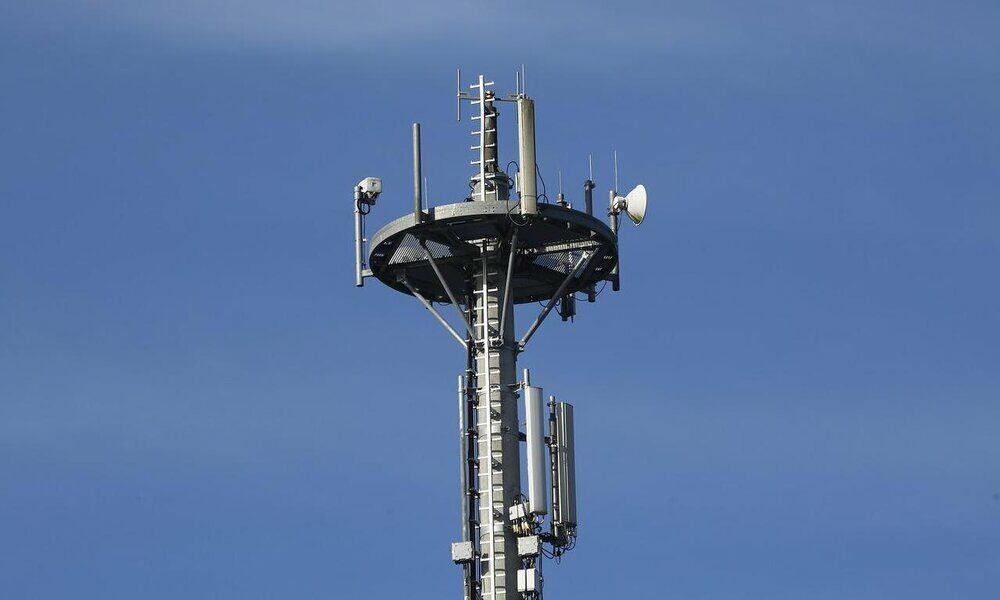
Something unthinkable until recently, that the phones can be left without coverage in Europeit can happen this winter if there are countries in the north of the region that have to ration energy. This could knock out mobile networks of the affected areas, and leave hundreds of thousands of users of the mobile telephone service without service.
Russia’s decision to stop gas supplies through one of its main routes has increased the chances of service cuts in some countries. In France the situation is even worse, because there are some nuclear plants closing for maintenance. All this is a source of concern for many telecommunications companies, whose management fears that if the winter is harsh, Europe’s telecommunications infrastructure will be put to the test, and companies and governments will have to intervene to mitigate the situation.
This concern is due to the fact that there are currently not enough backup systems in many European countries to manage prolonged power outages. This has been stated to Reuters by four directors of the telecommunications sector, which increases the probability of mobile phone blackouts. For this reason, the countries of the European Union are trying to ensure that communications can continue to function even if there are power cuts that exhaust the batteries installed in the thousands of mobile antennas scattered throughout countries such as Germany, France, Italy and Sweden.
Europe currently has nearly half a million telecommunications towers. Most have backup batteries, but they don’t last more than 30 minutes, which is a problem if there’s a long blackout. But they are already working to avoid problems.
In France, the electricity distributor Enedis has advanced a plan that includes power cuts of up to two hours in the worst scenario of all. The cuts, general, would only affect parts of the country that would rotate. In any case, essential services such as hospitals, the police and the government would not be affected, according to various sources. The French government, the telecommunications operators and Enedis, which is a division of EDF, controlled by the State, have held meetings on the matter throughout this summer.
But the French Telecommunications Federation (FFT), a lobbyist group representing Orange, Bouygues Telecom and SFR (of Altice), has attacked Enedis for not being able to make exceptions with antennas during these power cuts, which would be carried out, yes, only if the worst scenario of all those contemplated occurs. Given this, Enedis has not made any statements about these accusations and has only commented that it will treat all its customers in the same way if there are exceptional blackouts.
It has also pointed out that it is capable of isolating sections of the grid to supply priority customers such as hospitals, key industrial facilities and the military, and has passed the buck to local authorities to decide whether they want to add mobile phone operators to the list of priority customers. On this, an official from the French Ministry of Finance has stressed that they may have more knowledge of the subject by the time winter arrives, but has stressed that isolating a mobile antenna from the network is not easy.
In Germany Y Swedentelecommunications operators have also shown their concern about a shortage of electricity, something that they have already discussed with the authorities of their respective countries.
The Swedish regulator, PTS, is working with telecom carriers and other government agencies to find solutions. This includes negotiations about what will happen if there is a power rationing. In parallel, PTS is financing the purchase of portable fuel stations and mobile base stations that provide service to mobile phones to manage prolonged blackouts.
In Italy, the lobby of the telecommunications sector has indicated that it wants the mobile telephone network to be left out of any cut or energy saving, and they are going to communicate this to the new Italian government. In addition, the head of this lobby has also pointed out that it must be taken into account that there is a possibility that the electronic components fail if they suffer sudden interruptions.
On the other hand, there are manufacturers of telecommunications equipment, such as Nokia and Ericsson, that work with mobile operators to reduce the impact of a blackout. In addition, telecommunications operators have to review their networks to reduce the extra use of energy and modernize their equipment by installing more efficient radio systems in terms of energy consumption, according to managers who have warned of the lack of backup systems in case of blackout
To save energy, telcos are using software tools that optimize traffic flow, hibernate towers when not in use, and switch between different spectrum bands. Additionally, telecom operators work with their respective national governments to check if there are plans in place to maintain critical services.
In Germany, Deutsche Telekom has 33,000 mobile radio towersthough its mobile emergency power systems can support only a small number of towers at the same time. The company will use mobile power systems that rely primarily on diesel fuel if there are prolonged blackouts. France has some 62,000 mobile towers, and the sector will not be able to equip all of them with new batteries, according to FFT President Liza Bellulo.
But the situation shows that, accustomed to having uninterrupted energy for several decades, European countries do not have enough generators to have a backup system for prolonged blackouts, and investments in energy storage seem to have been lower than in other countries.



